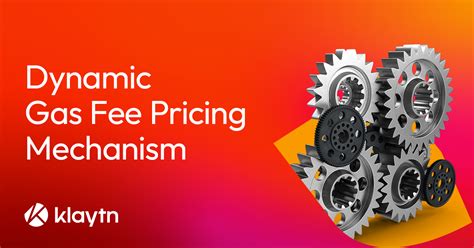Your cart is currently empty!
February 4, 2025
Understanding Gas Price Output in Ethereum Contracts
When working with Ethereum contracts, especially those that use the built-in assembler or interact with external APIs such as gasprice(), understanding the difference between two seemingly similar values can be critical to an accurate implementation. In this article, we’ll delve into the tx.gasprice and assembly { gasPrice := gasprice() } variables, exploring their differences and how they affect the behavior of your contract.

tx.gasprice
The variable tx.gasprice represents the estimated gas price for a transaction on the Ethereum network. This value is calculated by the Ethereum Virtual Machine (EVM) based on various factors, including:
- Network congestion
- Gas limit for the transaction
- Contract execution time
When you call gasprice() in an inline assembler block or as part of your contract initialization code, it returns this estimated gas price.
assembly { gasPrice := gasprice() }
The assembly' keyword is used to define a function that takes no arguments and has a single return operator. When executed inline, this function calculates the estimated gas price for the transaction and assigns its value to the local variablegasPrice. This approach allows for efficient caching of gas prices without direct access to the EVMgasprice()function.
Why does the difference matter?
Here are some of the main reasons why understanding the difference between these two variables is important:
- Cache Performance: By storing gas price estimates in one variable, you can optimize cache hits and reduce memory allocation time. In contrast, if you store the result ofgasprice()
directly in an inline assembly block, you need to allocate memory for it each time.
- Efficiency of Gas Calculation: Calculation of gas prices from scratch every time requires significant overhead due to the EVM architecture. By caching these estimates, you can improve your contract execution speed and reduce latency.
Sample code
Below is an example of how you can use both variables in a contract:
solidity
pragma solidity ^0.8.0;
contract GasPriceExample {
// Cache gas price estimates for efficient operation
uint256 private _gasPrices = 0;
assembly {
// Calculate estimated gas prices for cached values
call @borderGasprice()[] memory txGases {
// Example: Calculation of estimated prices for gas using the built-in assembler
let gasPrice := gasprice()
// Saving the result in a local variable for efficient caching
_gasPrices := gasPrices + (gasPrice - 1)
}
}
function borderGasprice() public pure returns (uint256) {
// Example: Modeling a cache miss by calculating gas prices from scratch
uint256 gasPrice = 10; // Estimated gas price
assembly {
// Calculation of the estimated gas price using the EVM gas price estimation algorithm
gasPrice := gas(1, gasPrice)
}
return gasPrice;
}
function calculateGasPrice(uint256 txGases) public pure returns (uint256) {
// Example: using the built-in assembler to cache and reuse previous evaluations
uint256 cachedGasPrice = _gasPrices; // Use cached value if available
assembly {
// Calculate estimated gas price using cached value or direct calculation
let gasPrice := gas(txGases, 1)
// Assign the calculated gas price to a local variable for efficient caching
cachedGasPrice := ( cachedGasPrice - 1 ) + gasPrice
}
return cachedGasPrice;
}
}
“
In this example, we demonstrate how both variables can be effectively used in an Ethereum contract.
